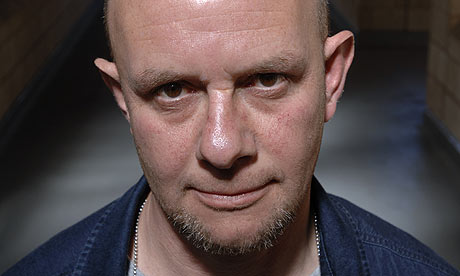
The news that Nick Hornby's new novel, Juliet, Naked, is about a sad sack's consuming obsession with an obscure American singer-songwriter will raise either a cheer or a groan, depending on your reaction to his previous forays into the field of male failure and its discontents.
The plot revolves around the failing relationship of Duncan and Annie, a lost, 30-something couple adrift in the cultural wasteland of Gooleness – a dispiriting seaside town on the northern coast, not a million miles from Grimsby. The central figure in Duncan's life is Tucker Crowe, a man he has never met. Crowe withdrew from the public eye in the 1980s following the critical success of an album dedicated to a former girlfriend. Duncan and an army of Crowe followers have since pursued their fixation for all things Crowe-related through the hall of mirrors of internet fan sites. The release of a stripped-down version of Crowe's album – the "eponymous" Juliet, Naked provokes a predictable storm of interest on the internet and a crisis in the lives of Duncan and Annie.
So far, so Hornby, you might say. But I enjoyed the novel for two reasons not usually connected with Hornby. The first was the sensitive and moving portrayal of Annie, as she tries to rescue her life after what she sees as 15 years wasted on a man who has never loved her. Her aching sense of loss and her fear in the face of an uncertain future are beautifully and memorably realised by an author more often lauded (or derided) for his scrutiny of laddish foibles.
The second reason I enjoyed the novel more than any of Hornby's previous works, is the playful postmodern approach to the nature of fiction. Duncan's internet-based quest to uncover the truth about Crowe's retirement gives Hornby licence to have lots of fun with the fact that such endeavours produce a blizzard of egregious facts which take on a life and meaning of their own. Hornby produces faux-Wikipedia entries for Crowe and demonstrates how the insertion of one red herring can result in a fish farm of false information. Meanwhile Annie goes in search of her own truth about the relationship between life and art. Her hesitant probing produces profound conclusions about the artifice behind all artistic endeavours.
I was reminded by this book of the antic portrayal of the art-obsessed loser Martin Clay in Michael Frayn's Headlong. It is Clay's obsession with the supposed existence of a long-lost masterpiece by Breughel that sparks the often farcical action and produces much cod art history along the way. Both novels wittily dissect the way a neurotic focus on an artist distorts and traduces the artist's work.
A novel about an obsessed creep runs the risk of alienating the reader. In Juliet, Naked, Hornby keeps our attention with a fine display of human understanding.

